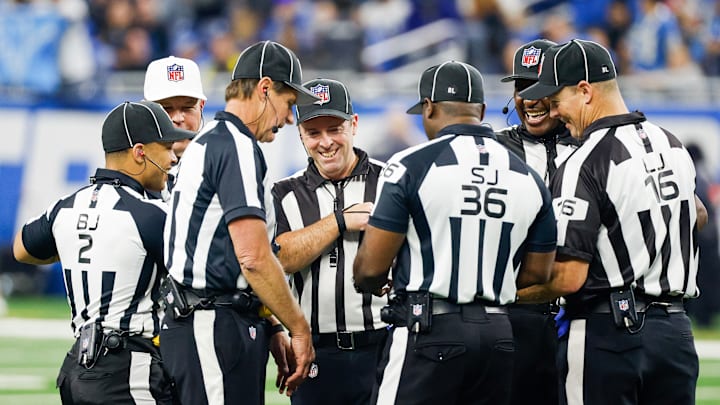The 2012 NFL season had a more bizarre and chaotic opening month than any other season.
In the offseason, the league was embroiled in a fight with the officiating union regarding referee pensions and control over replacing referees. The two sides couldn't agree to terms, leading to a referee lockout in June. The NFL decided to trot out under-prepared "replacement referees" and proceeded with the regular season as planned. Unfortunately, they quickly realized just how irreplaceable their referees truly were.
The officiating was a disaster immediately, with the first three weeks of the season defined by botched calls, agonized coaches and furious fans. Kyle Shanahan, who was Washington's offensive coordinator at the time, was fined $25,000 for profanely berating officials. Other coaches that received fines included Bill Belichick and John Fox.
The nadir of the season came during a nationally televised Monday night game, when an incorrect call cost the Green Bay Packers a victory against the Seattle Seahawks. Facing immense public scrutiny, the league scrambled back to the negotiation table. The two sides agreed to a deal that ended the lockout and brought the league's experienced referees back onto the field.
There was a valuable lesson in that entire saga. No matter how much fans complain about the NFL's referees, they are professionals who perform their job at a higher level than anybody else could.
Are NFL referees full-time employees?
NFL officials remain part-time employees. It sounds odd that a sports league worth billions of dollars could see their product quality crumble without its referees and not elect to hire them as full-time employees.
The officiating structure is a vestige from the NFL's earliest days, when there were only a dozen games and even players relied on other jobs as their primary source of income. Despite the league's unparalleled success, officials are still stuck with part-time roles.
The NFL did make a half-hearted attempt to hire referees as full-time employees in 2017, but they backed away from that program after negotiations between the league and the NFL Referees Association broke down. Since then, the league has resisted the idea that full-time referees would perform better than part-time referees, while claiming that it would be difficult to hire full-time referees since their work is seasonal.
The part-time role could also be a significant factor in the turnover rate — 12 officials left the league before the 2023 NFL season, according to Football Zebras. Last season, there were 10 departures.
The average NFL referee salary has crossed $200,000 annually, according to Money.com. Still, most referees continue to rely on other occupations. Many of them are bankers, teachers or tax managers, but quite a few of them have some more interesting occupations outside of football.
NFL referees with the most interesting occupations
Mike Morton, second-year official: Morton was a former NFL player. He is one of the few NFL players who found a way to stay on the field even after his playing career was over. Clever. Morton also works full-time as a dentist — creating quite a trifecta of occupations. Nate Jones and Terry Killens, both fifth-year officials, are the only other referees who were former NFL players.
Eugene Hall, 10th-year official: Hall roams NFL fields part-time, but he works as a federal agent full-time.
Mike Wimmer, 21st-year official: Wimmer works as a producer for NFL Films and HBO's Hard Knocks, as well as a director for several NFL documentaries.
Frank Steratore, first-year official: The first-year official is the cousin of well-known referees Gene and Tony Steratore, who are no longer in the NFL. Frank works for the Steratore Sanitary Supply company. Sanitation and officiating seem to be family business.
Bruce Stritesky, 18th-year official: Stritesky is an airplane pilot.
